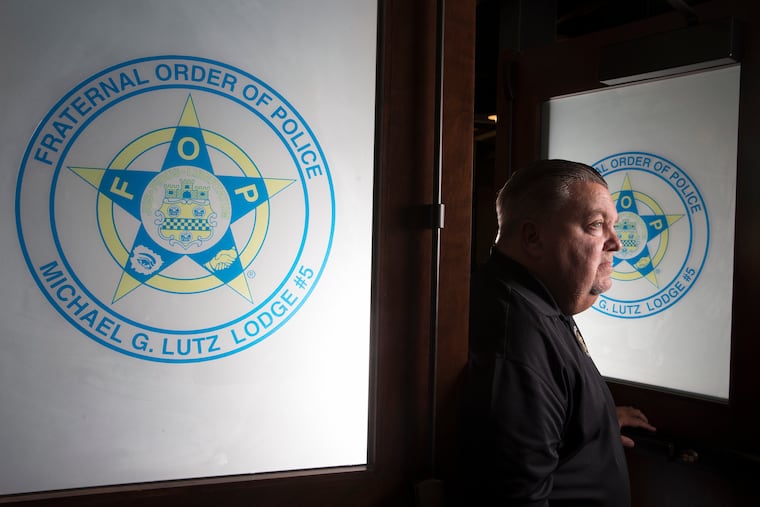Philly’s FOP is like the Wizard of Oz: powerful and mighty until you look behind the curtain | Editorial
If officers in Philadelphia really want to be part of the solution, they have to demand change from their union — even if it means disbanding it and starting a new union from scratch.

As Philadelphia and the nation enter a third week of protests against police brutality, debates about how to reform policing are gaining momentum. But those debates will lead nowhere unless we dispel with the delusion that because police are funded with tax dollars, they will be accountable to the public. That’s a delusion because of a dangerous force: police unions that are actively fighting against change or accountability. That includes Philadelphia’s Fraternal Order of Police Lodge 5.
On Monday morning, while the rest of the country was facing a moment of reckoning with police brutality, the president of the FOP, John McNesby, and over 100 other members cheered Staff Inspector Joseph Bologna as he surrendered himself to face aggravated assault charges for beating a protester — on video. A second incident of brutality against a protester is being investigated.
Bologna has been at the center of controversy over police misconduct and force used by those under his command since the early 2000s. None of that prevented Bologna from being promoted to staff inspector.
The FOP has a long history of supporting cops who have been fired or demoted for offenses, including sexual assault, domestic violence, stalking, and lying under oath. The FOP is able to protect officers because of the arbitration process laid out in the contract. The arbitration panels are secret and rulings are final. An Inquirer investigation found that more than 100 questionable cops were rehired or had sanctions against them overturned through arbitration.
» READ MORE: Inside the once-secret misconduct files of 27 Philadelphia police officers
Police should have avenues to appeal management decisions and disputes. But there are models around the country for a more just appeal process: placing the burden of proof on officers, allowing civilian commissions to adjudicate police disciplinary matters, allowing appeals to go to court, or requiring that City Council approve arbitration decisions.
Some of these models could require changes to state law, but there is more that the city can gain at the bargaining table next winter before the one-year extension of the contract expires.
There is a perception that the FOP is an all-powerful political entity. That no longer seems to be the case. In 2017, the FOP shelled out nearly $50,000 on Rich Negrin and Beth Grossman campaigns in their effort to stop Larry Krasner from becoming DA. Negrin came in third. Hardly a show of force. Ninety percent of the FOP’s money spent on City Council candidates in 2019 went to support five candidates who lost.
» READ MORE: Reimagining police: 14 ways to change a broken system | Perspective
The FOP is like the Wizard of Oz — it seems powerful and mighty until you look behind the curtain. There is nothing for Mayor Jim Kenney, or any other elected official, to be afraid of. Hopefully, they finally recognize it: This week, 14 members of Council and Kenney announced support to changes in arbitration, among other reforms.
Employees of the Philadelphia Police Department deserve a union to advocate for them. The FOP, however, time and again ignored racial and gender discrimination, as well as sexual harassment and assault. If officers in Philadelphia really want to be part of the solution, they have to demand change from their union — even if it means disbanding it and starting a new union from scratch.